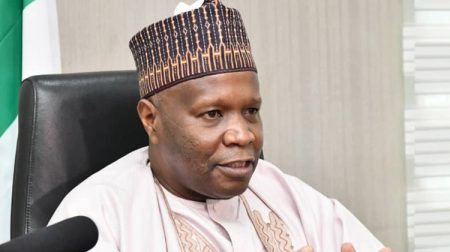Nigeria’s nascent hydrogen industry took a significant leap forward with the announcement of a national hydrogen development agenda, signaling the government’s commitment to capitalizing on the immense potential of this clean energy source. This move, spearheaded by the Minister of State Petroleum Resources (Gas), Ekperikpe Ekpo, marks a crucial step towards establishing Nigeria as a key player in the global hydrogen economy. The initiative aims to harness both blue hydrogen, derived from natural gas with carbon capture, and green hydrogen, produced through electrolysis powered by renewable energy sources. Nigeria’s abundant natural resources, strategic geographical location, and burgeoning industrial sector position it favorably to become a leader in this emerging field. The development of a comprehensive hydrogen policy is seen as the cornerstone of this ambition, providing a roadmap for integrating hydrogen into the nation’s energy mix.
The proposed national hydrogen policy promises multifaceted benefits for Nigeria, spanning economic growth, environmental sustainability, and infrastructure development. Economically, the hydrogen industry is projected to diversify revenue streams, create new job opportunities, and attract significant foreign investments, boosting the country’s overall economic performance. Environmentally, hydrogen offers a pathway towards decarbonizing the energy sector, aligning with Nigeria’s commitment to mitigating climate change and contributing to global sustainability efforts. The policy will also leverage existing gas infrastructure for hydrogen production and distribution, fostering advancements in energy storage, fuel cell technology, and transportation systems. This comprehensive approach demonstrates Nigeria’s commitment to a sustainable and prosperous future powered by clean energy.
The inception meeting for the development of the hydrogen policy brought together key stakeholders, including government officials, industry representatives, and international development partners. Minister Ekpo emphasized the importance of cross-sectoral collaboration in crafting a robust and inclusive policy that reflects Nigeria’s unique context and aspirations. He highlighted the potential of hydrogen to transform various sectors of the economy, creating a ripple effect of positive change across the nation. The Minister of Budget and Economic Planning, Senator Abubakar Atiku Bagudu, reinforced the government’s commitment to supporting the policy’s implementation, ensuring its alignment with the broader national development agenda and President Bola Tinubu’s “Renewed Hope” vision.
International partners have also expressed strong support for Nigeria’s hydrogen ambitions. The German Agency for International Cooperation (GIZ) commended the initiative and pledged continued collaboration in unlocking the potential of hydrogen energy. GIZ’s representative, Mr. Joshua Garba, emphasized the global significance of hydrogen for decarbonization and acknowledged Nigeria’s timely entry into this burgeoning market. The international community’s backing underscores the global recognition of hydrogen’s potential and Nigeria’s strategic importance in the clean energy transition. This collaboration will facilitate knowledge sharing, technology transfer, and capacity building, accelerating Nigeria’s progress in the hydrogen sector.
The development of a national hydrogen policy represents a significant milestone in Nigeria’s pursuit of a sustainable energy future. This comprehensive strategy seeks to leverage the country’s abundant resources and strategic position to establish a thriving hydrogen economy. The policy’s multifaceted benefits encompass economic growth, job creation, environmental sustainability, and infrastructure development, aligning with national development priorities and global climate goals. With strong government commitment, cross-sectoral collaboration, and international partnerships, Nigeria is poised to become a significant player in the global hydrogen landscape. The policy’s implementation will require careful planning, strategic investments, and ongoing stakeholder engagement to ensure its long-term success.
The anticipated impact of Nigeria’s hydrogen policy extends beyond national borders. By embracing this clean energy source, Nigeria sets a precedent for other African nations, demonstrating the potential for sustainable development and economic diversification. The country’s commitment to hydrogen can inspire regional collaboration and accelerate the continent’s transition to a cleaner energy future. Furthermore, Nigeria’s participation in the global hydrogen market can contribute to a more diversified and resilient global energy system, reducing reliance on fossil fuels and mitigating the risks of climate change. The development and implementation of this policy mark a crucial step towards realizing Nigeria’s vision of a sustainable and prosperous future powered by clean energy.














